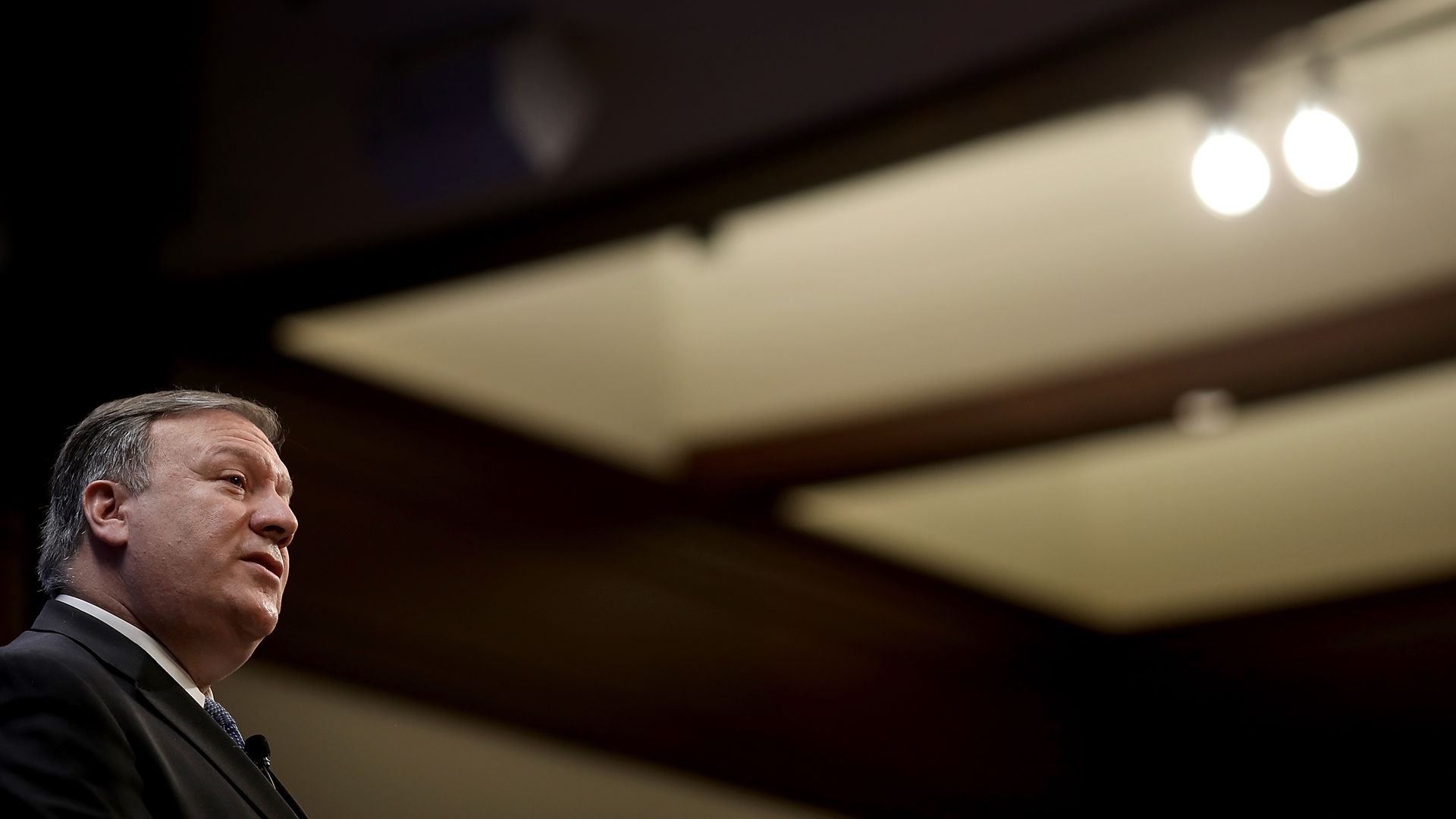Updated May 30, 2018 - World
Expert VoicesTrump's strategy on the Iran deal: force Iran to quit
Add Axios as your preferred source to
see more of our stories on Google.

Secretary of State Pompeo speaks about the Iran deal at the Heritage Foundation May 21, 2018, in Washington, DC. Photo: Win McNamee via Getty Images
